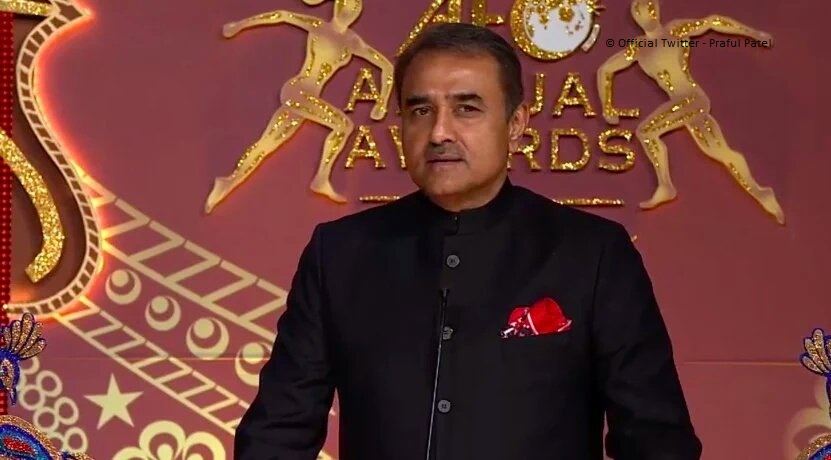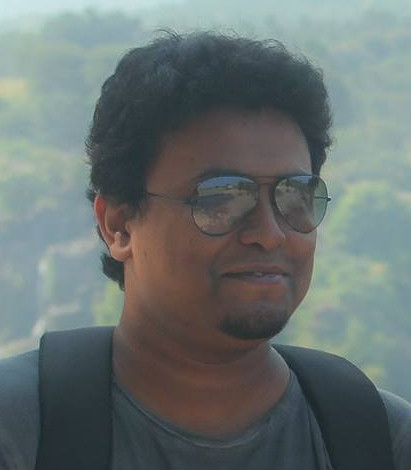Why every sport in India needs a Lodha committee
At times in order to create, you need to destroy. Take down corrupt and inept organizations, and rebuild from the rubbles. The Lodha committee's recommendations, which were enforced on the BCCI by the Supreme Court, threaten to do so to Indian cricket.

The recommendation says that office-bearers in the BCCI cannot hold posts simultaneously in the state associations. BCCI President Anurag Thakur, who is also the President of Himachal Pradesh State Cricket Association, will have to step down from the latter to continue in his role at the BCCI. An age cap of 70 will be enforced, meaning individuals like Sharad Pawar, N Srinivasan, and Niranjan Shah will face the axe.
The biggest change, however, will be the absence of ministers, politicians, and bureaucrats in the governing body. Long has the BCCI been run by political leaders, who have limited knowledge of the sport. This will open up the avenue for former cricketers and sportspersons to take up administrative roles in the BCCI, like it is done in most of the sporting organizations across the world.
The BCCI has been given a period of six months to implement these changes, and the governing body should come out as more transparent, as they have to include that mose dreaded of people in India - a Comptroller and Auditor General (CAG) representative in its rank. However, in this nation, it is not only cricket which is in need of such reforms.
India will be sending its biggest-ever contingent to the Rio Olympics this summer. Generally, that can act as a good indicator on the status of sports administration in a nation. But, this is more of a case of “despite of”, rather than “due to”.
Football, India's second most popular sport, is governed by an organization which operates like a 10-year-old in a supermarket without adult supervision.
Football, India's second most popular sport, is governed by an organization which operates like a 10-year-old in a supermarket without adult supervision. Back in 2010, when the AIFF sold the commercial rights to all footballing activities in the nation to IMG Reliance in a 700-crore deal, it seemed like a revolutionary step for Indian footfall. Six years later, the nation's premier domestic league is falling apart, historic clubs are shutting down their doors, and the national team has experienced another disappointing World Cup Qualification campaign.
AIFF's president Praful Patel has no prior experience with the sport, and he has proved to be one of the most inept administrators the AIFF has seen. The politician, who is a member of the Rajya Sabha, would not be eligible for his post if the Lodha committee's recommendations were enforced on football in India.
The Lodha committee has also recommended that a BCCI office-bearer cannot hold multiple posts simultaneously, but in Indian football, conflict of interest is hardly paid any attention. Bhaichung Bhutia in addition to his advisory role with the AIFF is also the chairman of AIFF's technical committee, consultant with the ISL franchise Atletico de Kolkata, President of the Football Players' Association of India (FPAI), and director of a player management agency named 'The Football Edge'. Bhutia is not alone. Shrinivas Dempo, who is the AIFF's vice-president, is also the owner of I-League club Dempo SC, and co-owner of the ISL club FC Goa.
To run a sport, the basic need from a governing body is to exist - something which the Indian Amateur Boxing Federation has not been able to do.
But deplorably, AIFF are not the worst in terms of sports governance in this nation. To run a sport, the basic need from a governing body is to exist - something which the Indian Amateur Boxing Federation has not been able to do.
From sending an 8-member boxing team to London in 2012, only three Indian pugilists will be competing in Rio this time around. The Indian Amateur Boxing Federation was suspended in 2012 for rigged elections and the new body, Boxing India, was dissolved in 2014 due to tussles between state units. Even as rival factions tried to topple each other, the Indian boxers, without a national body, were forced to fight under the AIBA's flag, instead of the Indian flag, prompting widespread outrage from athletes including Mary Kom, who asked, “When our flag is not flying high, what is the point of even competing?”.
Of course in 2012, the Indian Olympic Association (IOA) itself was suspended by the International Olympic committee (IOC) on charges of corruption, government interference, and not following the guidelines of IOC. It was one of the darkest days in Indian sports, perhaps second only to the calamitous 2010 Commonwealth Games, which took place under the leadership of Suresh Kalmadi.
Eventually in 2014, IOC lifted the ban over IOA after N.Ramachandran, who is also the president of World Squash Federation and the chief of Squash Racquet Federation of India, was elected as the president. However, his arrival has not changed much inside the governing body. In fact, back in September last year, Ramachandran, who is brother of former BCCI chief N. Srinivasan, was stripped of his Rashtriya Khel Protsahan Puraskar award by the Delhi High Court, which he had won after making false claims of spending Rs. 7.5 crore over a period of 10 years to run the Squash and Triathlon Academy in Tamil Nadu.
In a scathing judgement, after a group of former squash players filed a PIL challenging the award, the Delhi High Court said that Ramachandran “exemplifies everything that is wrong in such matters in Indian sports”. Ramachandran's arrival has only instigated further infighting in IOA with several individuals trying to usurp his throne. Back in June last year, Hockey India present Narinder Batra claimed that Ramachandran offered him Rs 1 crore to support his presidential candidacy during the election of IOA. The allegations were denied by Ramachandran, who continues to be at the helm of IOA, despite being a case of conflict of interest owing to his multiple roles in various organizations.
Change in sports circles in India has always been pushed down the throat by outsiders as happened when the IOA suspended the Indian Hockey Federation (IHF) back in 2008 after their then Secretary General, Jothi Kumaran was allegedly caught on video taking a bribe. The Supreme Court and the government had to step in at that time to resolve the dispute between IHF and Hockey India.
Back in March, the Union Sports Ministry renewed or accorded recognitions to 46 sports federations in the nation, compared to 51 last year. Among the organizations which have been derecognized are the All India Tennis Association, the Basketball Federation of India, Judo Federation of India, and Gymnastics.
The AITA refused to conduct fresh elections for the post of the President despite direct orders from the government. The sports ministry had asked Anil Khanna to step down from his role as the president of the AITA as he had violated the tenure clause and the "spirit of the National Sports Development Code of India”. However, the AITA remains adamant, and the government continues to be content with the deadlock.
The Judo Federation of India remains in a similar mess with president Mukesh Kumar prevailing at his post well past the tenure clause, and the federation refusing to agree to the ministry's request for fresh elections.
For factionalism, one does not need to look past the Basketball Federation of India (BFI). Basketball was dropped from the South Asian Games which was held in Guwahati earlier this year, after the International Basketball Federation (FIBA), in a strongly-worded letter, told representatives of the six nations to ‘refrain from sending any of your national teams to this basketball event’, citing ‘unacceptable interference’ by the Indian Olympic Association (IOA).
The IOA had to form an ad-hoc selection committee to select the squad for the South Asian Games, after it refused to recognize the leadership of K Govindraj in the BFI. There are currently two factions within the organization, one led by Govindraj and the other led by Roopam Sharma. While the former has the backing of the FIBA, the IOA has refused to side by them. This has only further hindered the growth of this sport, and an external intervention is needed.
Last year, a PIL was also filed against the Badminton Association of India (BAI) for 'massive irregularities in its functioning' and its election process. The PIL claimed that the elections were manipulated and were conducted at the whim of the president Akhilesh Das Gupta.
The Sports Ministry has said last month that they will not interfere in the selection process of sports organizations, and the BCCI has expressed similar reservations against including the CAG representative, insisting that the ICC might suspend them calling it a case of government interference.
However, most of these sports bodies require 'cleansing'. Popularity of sports other than cricket is on a rise once again, and the nation is producing talents across disciplines. As it is, these athletes are already up against the odds in their attempt to make their mark in such global events. In that light, the least we can do is remove 'governance' from that list of overwhelming odds. Former Chief Justice RM Lodha and his colleagues have done a fantastic job with regards to bringing reforms in cricket. They must now turn their focus on other sports as well. DESPITE all the trouble, India will see its largest representation at the quadrennial games in Rio this August. It is encouraging to think about how the number might rise if these athletes are provided proper support from the governing bodies.

Comments
Sign up or log in to your account to leave comments and reactions
0 Comments